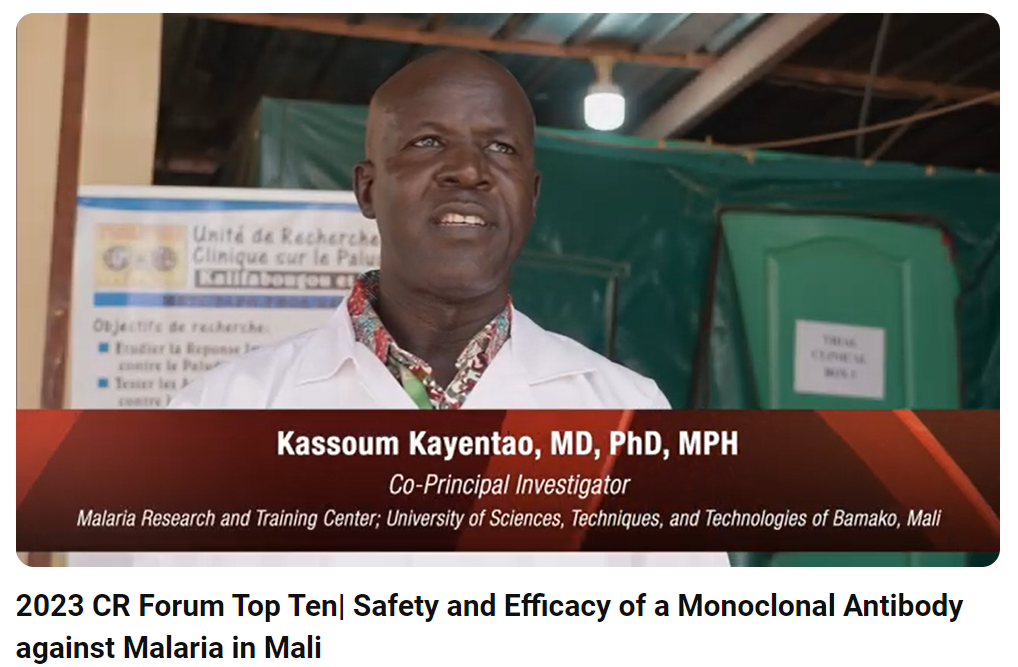Safety and Efficacy of a Monoclonal Antibody against Malaria in Mali
Malaria Research and Training Center (MRTC), University of Sciences, Techniques and Technologies of Bamako (USTTB), Mali; National Institute of Allergy and Infectious Diseases (NIAID), National Institutes of Health (NIH), United States
Countries: Mali
Published: 24/04/2023
Dr. Peter Crompton, in collaboration with a team of researchers from NIAID and Mali, released groundbreaking results from their phase 2 trial of a novel approach to prevent malaria.
Until highly effective malaria vaccines are developed, new tools are urgently needed to complement existing countermeasures. CIS43LS is a long-acting monoclonal antibody that targets a protein on the surface of the malaria parasite. In a phase 1 trial, CIS43LS protected a small number of adult volunteers from controlled malaria infection in a laboratory setting. In Mali, Dr. Crompton and colleagues evaluated the safety and efficacy of high or low doses of CIS43LS against malaria infection over a 6-month rainy season when intense malaria transmission occurs. The team reported that a single intravenous infusion of CIS43LS before the rainy season was 88.2% effective at the high dose and 75.0% effective at the low dose in preventing malaria infection over 6 months as compared with a placebo. It was also safe.
THEMES: Basic Science | Drug-based Strategies



